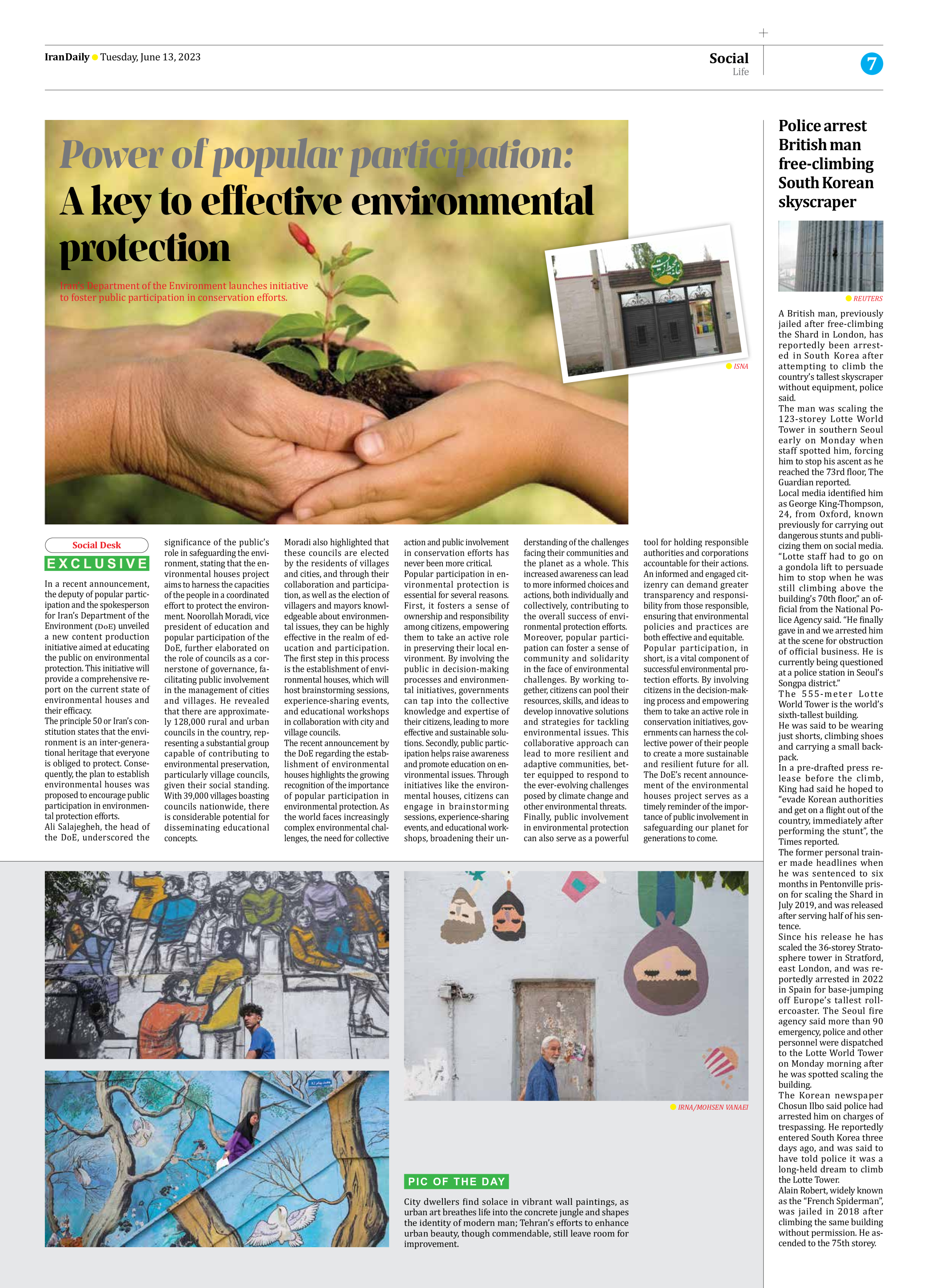
Power of popular participation: A key to effective environmental protection
Iran’s Department of the Environment launches initiative to foster public participation in conservation efforts.
In a recent announcement, the deputy of popular participation and the spokesperson for Iran’s Department of the Environment (DoE) unveiled a new content production initiative aimed at educating the public on environmental protection. This initiative will provide a comprehensive report on the current state of environmental houses and their efficacy.
The principle 50 or Iran’s constitution states that the environment is an inter-generational heritage that everyone is obliged to protect. Consequently, the plan to establish environmental houses was proposed to encourage public participation in environmental protection efforts.
Ali Salajegheh, the head of the DoE, underscored the significance of the public’s role in safeguarding the environment, stating that the environmental houses project aims to harness the capacities of the people in a coordinated effort to protect the environment. Noorollah Moradi, vice president of education and popular participation of the DoE, further elaborated on the role of councils as a cornerstone of governance, facilitating public involvement in the management of cities and villages. He revealed that there are approximately 128,000 rural and urban councils in the country, representing a substantial group capable of contributing to environmental preservation, particularly village councils, given their social standing. With 39,000 villages boasting councils nationwide, there is considerable potential for disseminating educational concepts.
Moradi also highlighted that these councils are elected by the residents of villages and cities, and through their collaboration and participation, as well as the election of villagers and mayors knowledgeable about environmental issues, they can be highly effective in the realm of education and participation. The first step in this process is the establishment of environmental houses, which will host brainstorming sessions, experience-sharing events, and educational workshops in collaboration with city and village councils.
The recent announcement by the DoE regarding the establishment of environmental houses highlights the growing recognition of the importance of popular participation in environmental protection. As the world faces increasingly complex environmental challenges, the need for collective action and public involvement in conservation efforts has never been more critical.
Popular participation in environmental protection is essential for several reasons. First, it fosters a sense of ownership and responsibility among citizens, empowering them to take an active role in preserving their local environment. By involving the public in decision-making processes and environmental initiatives, governments can tap into the collective knowledge and expertise of their citizens, leading to more effective and sustainable solutions. Secondly, public participation helps raise awareness and promote education on environmental issues. Through initiatives like the environmental houses, citizens can engage in brainstorming sessions, experience-sharing events, and educational workshops, broadening their understanding of the challenges facing their communities and the planet as a whole. This increased awareness can lead to more informed choices and actions, both individually and collectively, contributing to the overall success of environmental protection efforts.
Moreover, popular participation can foster a sense of community and solidarity in the face of environmental challenges. By working together, citizens can pool their resources, skills, and ideas to develop innovative solutions and strategies for tackling environmental issues. This collaborative approach can lead to more resilient and adaptive communities, better equipped to respond to the ever-evolving challenges posed by climate change and other environmental threats.
Finally, public involvement in environmental protection can also serve as a powerful tool for holding responsible authorities and corporations accountable for their actions. An informed and engaged citizenry can demand greater transparency and responsibility from those responsible, ensuring that environmental policies and practices are both effective and equitable.
Popular participation, in short, is a vital component of successful environmental protection efforts. By involving citizens in the decision-making process and empowering them to take an active role in conservation initiatives, governments can harness the collective power of their people to create a more sustainable and resilient future for all. The DoE’s recent announcement of the environmental houses project serves as a timely reminder of the importance of public involvement in safeguarding our planet for generations to come.







